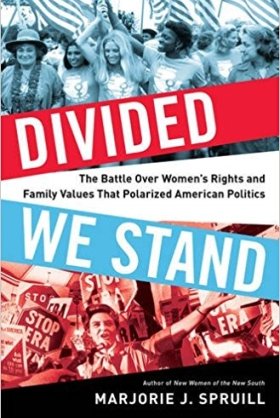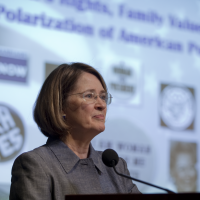Divided We Stand: The Battle Over Women's Rights and Family Values That Polarized American Politics

Forty years ago, two women's movements drew a line in the sand between liberals and conservatives. The legacy of that rift is still evident today in American politics and social policies.
Gloria Steinem was quoted in 2015 (the New Yorker) as saying the National Women's Conference in 1977 "may take the prize as the most important event nobody knows about." After the United Nations established International Women's Year (IWY) in 1975, Congress mandated and funded state conferences to elect delegates to attend the National Women's Conference in Houston in 1977. At that conference, Bella Abzug, Steinem, and other feminists adopted a National Plan of Action, endorsing the hot-button issues of abortion rights, the Equal Rights Amendment, and gay rights--the latter a new issue in national politics. Across town, Phyllis Schlafly, Lottie Beth Hobbs, and the conservative women's movement held a massive rally to protest federally funded feminism and launch a Pro-Family movement.
Although much has been written about the role that social issues have played in politics, little attention has been given to the historical impact of women activists on both sides. DIVIDED WE STAND reveals how the battle between feminists and their conservative challengers divided the nation as Democrats continued to support women's rights and Republicans cast themselves as the party of family values.
The women's rights movement and the conservative women's movement have irrevocably affected the course of modern American history. We cannot fully understand the present without appreciating the events leading up to Houston and thereafter
Author

Professor, History Department, University of South Carolina
Explore More
Browse Insights & Analysis
Women are the Catalysts for Change in Lebanon

Empowering Women to Support Morocco’s Industrial Transformation

Women and Latin America’s Digital Revolution
